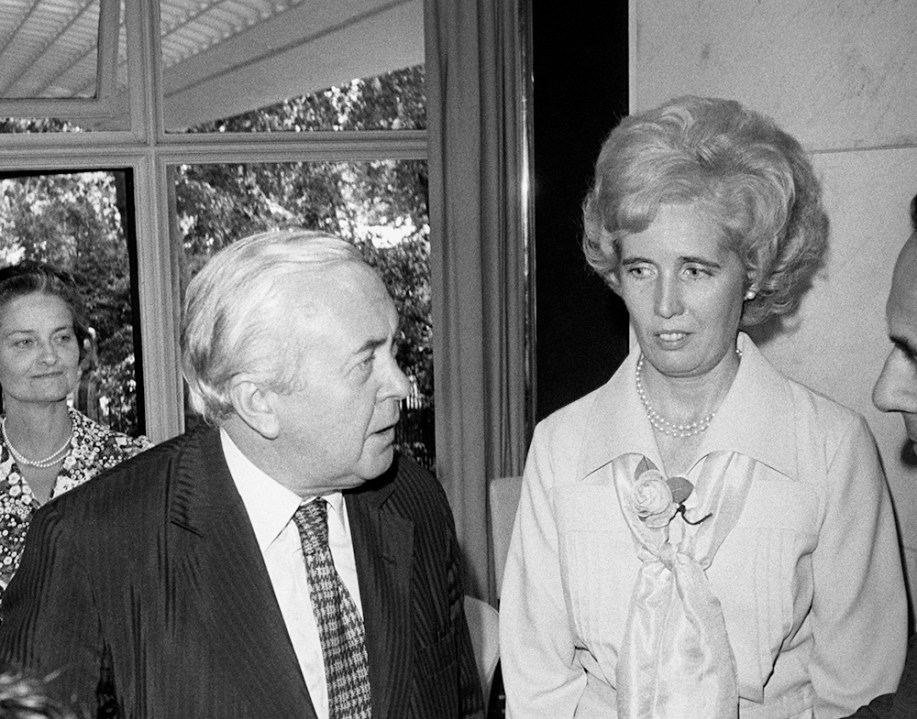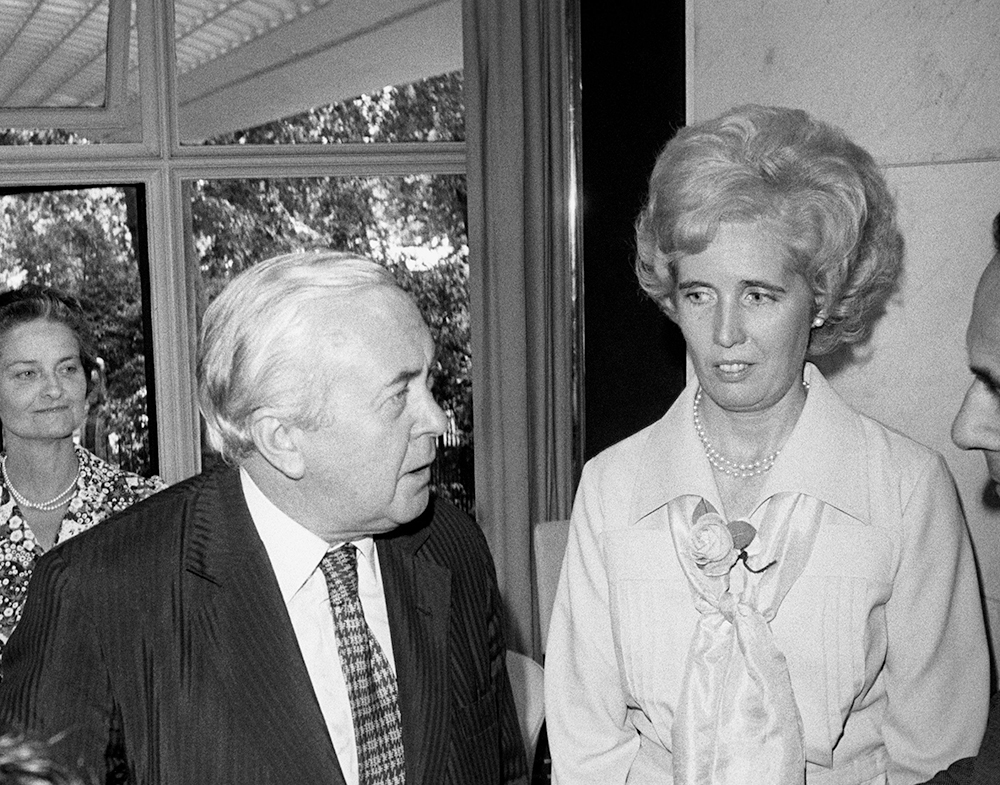If Marcia Williams is thought of at all today, it is in terms of hysterical outbursts, a mysterious hold over the Labour prime minister Harold Wilson and, above all, the ‘Lavender List’ – Wilson’s 1976 Resignation Honours List in which Marcia is believed to have played a significant part. Linda McDougall, the widow of the Labour MP Austin Mitchell, gives an infinitely more nuanced and sympathetic picture of this extraordinary woman. I found her biography gripping, with its insider knowledge of government, its picture of the emotional dynamics of Downing Street and its sensational claim that Marcia may have been drugged by Wilson’s own doctor.
She took Purple Hearts to keep alert and handfuls of Valium to sleep, all prescribed by Wilson’s doctor
The Williams-Wilson partnership – there is no other word for it – started when, after graduating from London University’s Queen Mary College, Marcia spotted the potential of Wilson, 16 years her senior and then the ambitious Labour MP for Ormskirk. She became his private and political secretary in the 1964-70 and 1974-6 governments and was ennobled by him in 1976 as Baroness Falkender.
McDougall sets out the case early on for Marcia – a brickworks manager’s daughter, born Marcia Matilda Field on 10 March 1932 – to be regarded as the most influential woman in 20th-century politics after Margaret Thatcher. She also makes plain just how difficult it was for a woman to forge a career in the 1950s and 1960s – a time of hats and gloves and looking after children at home.
From the start, Marcia was much more than a secretary. Complementing Wilson’s more technocrat approach, her finely honed political antennae picked up nuances he missed. Wilson was considered a touch downmarket by the Labour élite of those days. There was even a rumour that he and Mary had flying ducks on the wall of their front room, while his gritty Yorkshire accent was in strong contrast to the more refined tones of the circle around Hugh Gaitskell.








Comments
Join the debate for just £1 a month
Be part of the conversation with other Spectator readers by getting your first three months for £3.
UNLOCK ACCESS Just £1 a monthAlready a subscriber? Log in